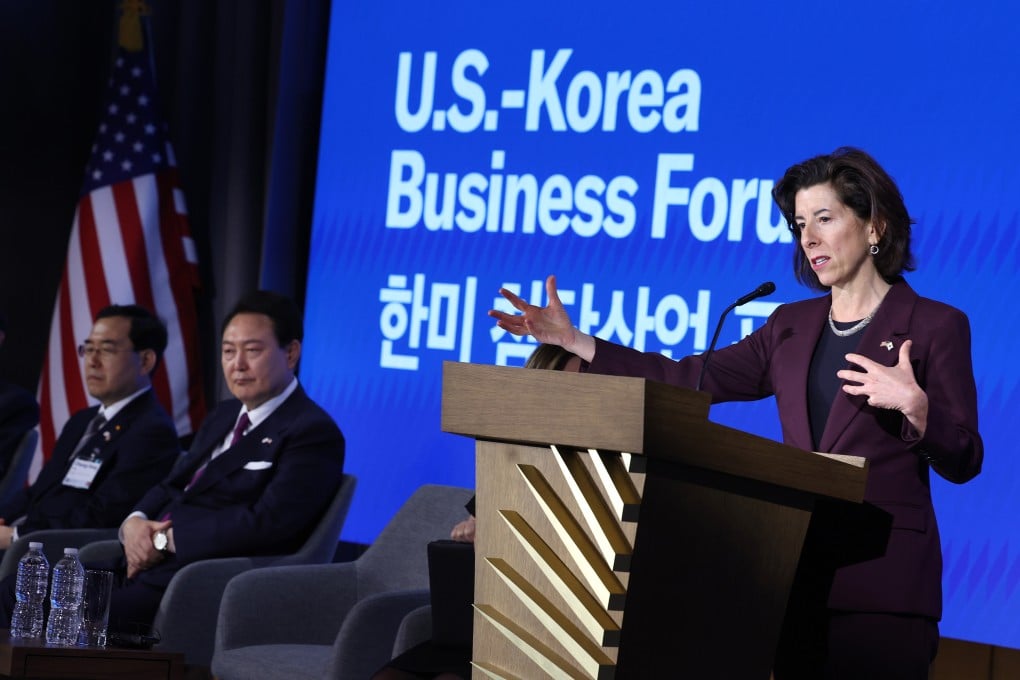Advertisement
Inside Out | Raimondo must face reality of West’s shrinking importance in global affairs during her China visit
- Developing countries want a stronger voice in international decision-making and in setting the rules and practices of the future multilateral architecture, and are taking practical steps to achieve that
Reading Time:4 minutes
Why you can trust SCMP
32

As US Secretary of Commerce Gina Raimondo sits down this week with Chinese trade officials for “constructive discussions on issues relating to the US-China commercial relationship, challenges faced by US businesses, and areas for potential cooperation”, she would do well to ponder two facts.
First, China’s trade with the developing world has overtaken trade with the West, with the Association of Southeast Asian Nations overtaking the United States as China’s top trading partner. Second, the five Brics economies account for a larger share of global GDP, in purchasing power parity terms, than the Group of 7.
Instead, a different set of numbers are likely to be at the front of her mind. China’s exports to the European Union fell 20.6 per cent year on year in July while those to the US fell 23.1 per cent, suggesting that a weakened China is in decline as the dominant manufacturer to the world, potentially falling into a recession.
Her Chinese counterpart, Commerce Minister Wang Wentao, will doubtless push a different narrative. China’s overall trade grew by 2.1 per cent in the first half of 2023, with the economy continuing to grow at a faster pace than in most countries.
The sharply contrasting narrative of numbers not only reflects the two different prisms through which China and the US view the world but also an accelerating shift in the world economy. Countries in the developing world want a stronger voice in international decision-making and in setting the rules and practices of the future multilateral architecture, and they are taking practical steps towards that goal.
The US is making huge efforts to consolidate a consensus among traditional friends and allies. China, meanwhile, is providing intellectual leadership to a group of countries sprawled across the developing world that share very little in common, except a belief that they have been badly served by the rules of the global economic order created in the wake of World War II and that new rules and architecture are needed.
Advertisement
